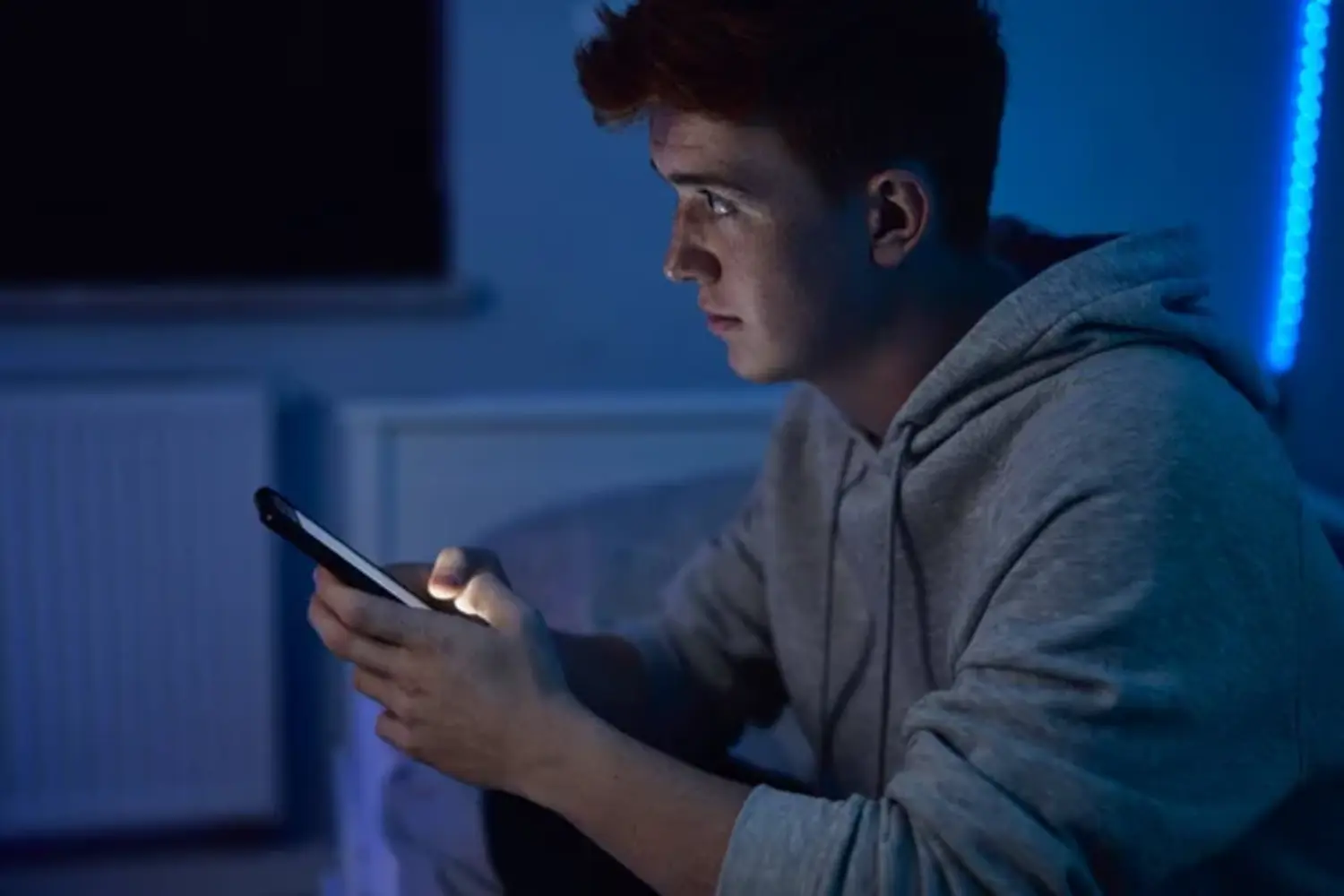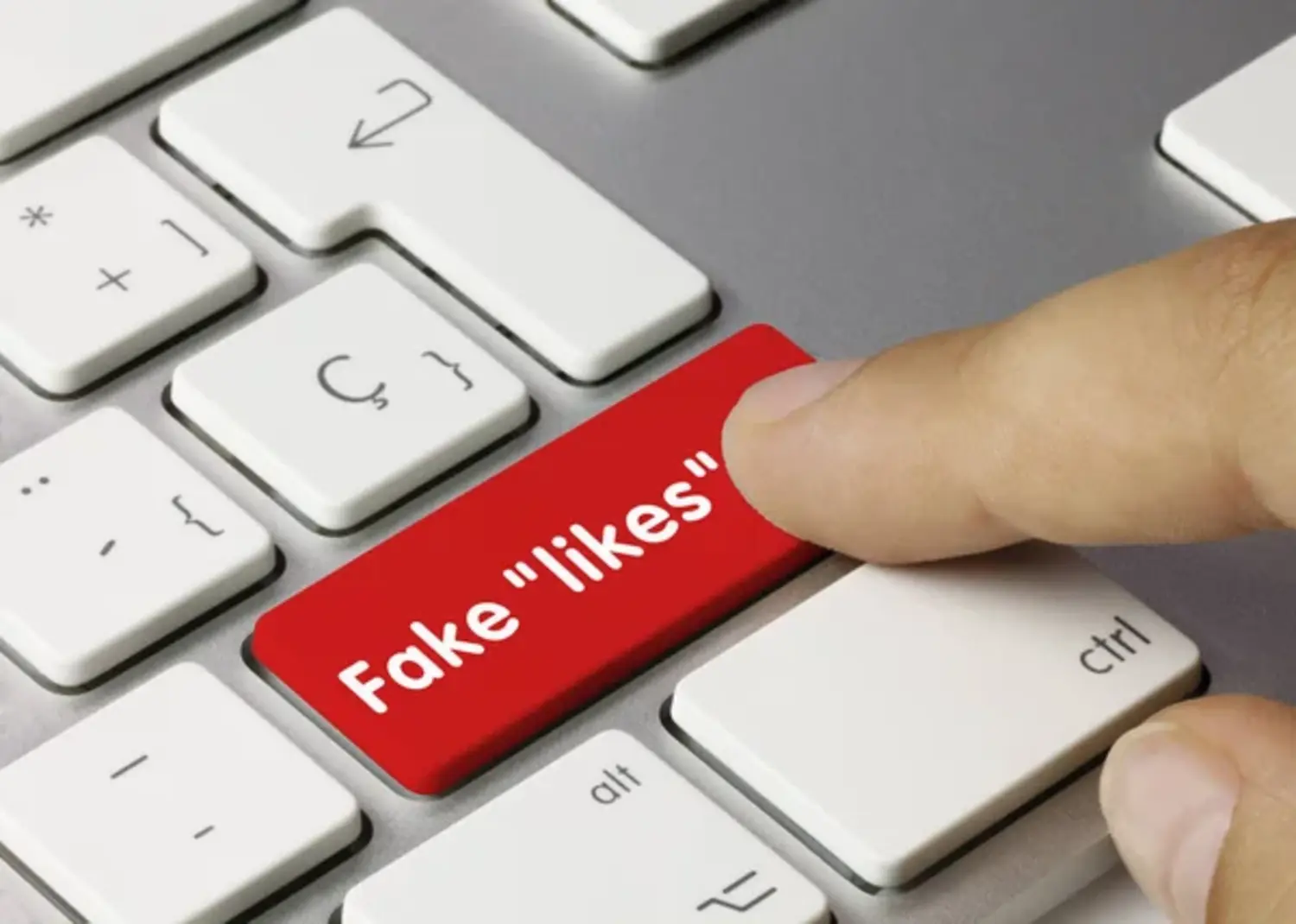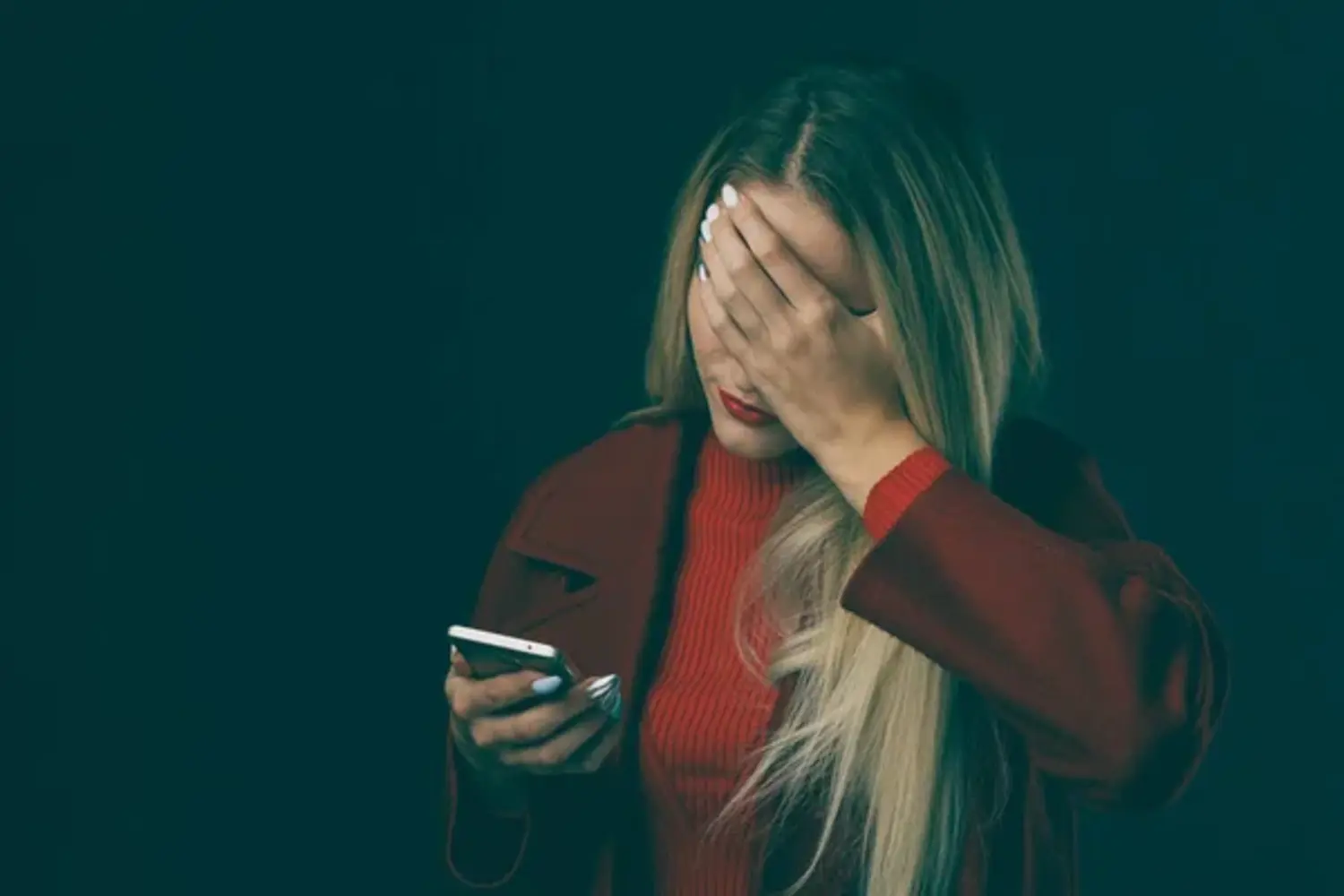In the vast virtual realm of social media, where connections and friendships thrive, there may lurk a darker presence, haunting your every digital move.
Yes, we’re talking about the unsettling signs he is stalking you on social media!
In this age of hyperconnectivity, it’s not uncommon to encounter individuals who cross boundaries and invade your online sanctuary.
But fear not, for knowledge is power, and in the following lines, we shall illuminate the telltale signs of this digital specter. Signs he is stalking you on social media are like enigmatic footprints that, when deciphered, reveal a haunting tale of unwarranted attention.
So, don your detective hat, as we dive into the depths of this virtual mystery, and learn how to unveil the hidden tracks of these shadowy figures!

Signs He Is Stalking You On Social Media
In the mesmerizing world of social media, where connections blossom and friendships thrive, there exists a chilling reality that many are oblivious to – signs he is stalking you on social media.
As we navigate through the ever-expanding digital landscape, it’s crucial to recognize the cryptic clues that may indicate an unwelcome and intrusive presence in our online lives.
These signs he is stalking you on social media are like intricate webs spun in the shadows, awaiting discovery. Join us on this gripping journey, as we unveil the enigma behind these haunting indicators, empowering you to protect your virtual haven.
Beware, for hidden within the feeds and posts lie the footprints of those who watch from the darkness – signs he is stalking you on social media! Let us shed light on this elusive menace and arm you with the knowledge to safeguard your digital sanctuary.
10 Signs He Is Stalking You On Social Media
Frequent Profile Visits
You Notice The Same Person Repeatedly Visiting Your Social Media Profiles. Many Platforms Have Features That Show Recent Visitors To Your Profile, And If You Consistently See The Same Person, It Could Be A Sign Of Stalking.
While online platforms provide valuable tools for staying connected, they also open avenues for intrusive behavior, demanding vigilance on our part to safeguard our digital spaces.
The act of consistently observing someone’s online presence can be discomforting, creating a sense of unease and violating our boundaries.
When you notice the same person repeatedly visiting your social media profiles, it’s crucial to take these occurrences seriously and not dismiss them as mere coincidences.
While some individuals might visit profiles out of curiosity or genuine interest, a persistent pattern of visits from the same person merits closer examination. Trust your intuition and pay attention to how these interactions make you feel.
One key aspect to consider is the context of your relationship with the person in question. If you have little to no real-life interaction with them and they consistently visit your profiles, it may indicate an unwarranted fixation on your online presence.
This behavior can leave you feeling exposed and vulnerable, as though your personal space is being invaded.
Excessive Likes and Comments
The Individual Constantly Likes, Comments, Or Shares Your Posts Within A Short Period, Even On Older Or Less Visible Content. They May Try To Engage With You To Draw Your Attention.
In the vast digital realm of social media, one of the clear signs that someone might be stalking you is when you notice excessive likes, comments, or shares on your posts.
While receiving engagement on our content is generally a positive experience, an unnaturally high volume of interactions from a particular individual can be unsettling and indicative of intrusive behavior.
When someone persistently likes, comments, or shares your posts within a short period, even on older or less visible content, it suggests an intense focus on your online presence.
They may be trying to gain your attention, seeking to establish a connection, or possibly even trying to impress or flatter you. However, it’s crucial to recognize that this behavior can feel overwhelming and invasive, impacting your sense of privacy and autonomy in the digital space.
Pay attention to the context of your relationship with the person engaging excessively with your content. If you have little to no real-life interaction with them or have only had minimal online exchanges, their behavior may be disproportionate and raise concerns about potential stalking tendencies.

New and Fake Accounts
You Receive Friend Or Follow Requests From Multiple Accounts With Suspicious Profiles, Few Followers, And Little To No Personal Information. Stalkers May Create Fake Identities To Interact With You Unnoticed.
One of the primary signs of social media stalking is receiving friend or follow requests from multiple accounts that raise red flags.
These accounts often have little to no personal information, such as a profile picture, bio, or post. They might be named with random combinations of letters and numbers, which indicates that they were hastily created solely for stalking.
Stalkers often create accounts with minimal connections to avoid drawing attention to their suspicious activities.
If you notice that the new accounts sending you friend requests have very few friends or followers, it could be a sign that they are not genuine users but rather stalkers trying to hide in the crowd.
Genuine social media users typically have connections with friends, family, colleagues, and acquaintances. However, if the accounts sending you requests have no mutual connections or seem unrelated to your social circles, it might be a sign of a stalker trying to maintain anonymity.
When stalkers create fake accounts to track their targets, they may excessively like, comment, or interact with their posts. While some genuine users might show a keen interest in your content, stalking accounts may go to extremes, leaving multiple comments or likes within a short period.
Message Overload
You Receive An Overwhelming Number Of Private Messages, Even After You’ve Politely Asked The Person To Stop Or If You Barely Know Them.
One of the most prominent signs of stalking through private messages is the persistence of the individual in contacting you despite your lack of reciprocation or explicit indication of disinterest.
Genuine acquaintances or friends might occasionally send you messages, but a stalker will persistently flood your inbox, making it hard for you to escape their attention.
Stalkers often disregard personal boundaries and social cues, making them oblivious to your discomfort or lack of interest. Even if you’ve politely asked the person to stop contacting you, they may persist in sending messages, exhibiting a lack of respect for your feelings and privacy.
Stalkers might use the information they gather from your public posts or other online sources to appear more familiar with you than they are.
They may reference details about your life, interests, or activities in their messages, creating an illusion of a closer connection and making you feel uncomfortable or creeped out.
Knowledge Of Personal Information
The Person Mentions Specific Details About Your Life Or Activities That You Haven’T Publicly Shared, Indicating That They’Ve Been Extensively Digging Into Your Online Presence.
A significant sign of social media stalking is when the person starts referencing information that you haven’t disclosed publicly on your profile or posts.
It could be anything from your daily routines, places you frequently visit, events you attended, or even conversations you had in private messages.
Such knowledge is alarming because it indicates that the individual has gone to great lengths to gather information about you.
Stalkers might create multiple accounts or use pseudonyms to gather information about you without raising suspicion. By concealing their true identity, they can operate covertly and take on different personas to access more of your personal information.
If you notice that the person knows details about you that are only available on other social media platforms or online forums, it suggests that they are actively monitoring you across various online spaces. This behavior signifies a level of obsession and invasive interest in your life.

Mutual Friends With No Connection
You Notice The Stalker Has Befriended Or Followed Many Of Your Friends Or Acquaintances Without Any Obvious Connection To Them.
When a person displays an excessive interest in your social circle, particularly if they have no apparent reason to be connected with your friends or acquaintances, it’s a red flag.
Genuine friendships on social media often stem from shared interests, common backgrounds, or mutual acquaintances. However, if the stalker has no evident connection to your friends, their presence may indicate a deeper intention.
Stalkers might attempt to widen their access to your life by befriending or following numerous individuals in your network. They may strategically target your friends, family members, or even coworkers, hoping to gather more information about you through indirect means.
A suspicious pattern to observe is when the stalker has many mutual friends but doesn’t seem to interact with them. Genuine social media users typically engage with their connections, liking and commenting on posts, and participating in conversations.
However, a stalker’s primary interest lies in monitoring your activities rather than forming genuine relationships with your acquaintances.
By befriending your mutual friends, the stalker gains access to information about your life through their posts and interactions. They can monitor your activities, events you attend, and even your interactions with others, all without directly engaging with you.
Unsolicited Tagging And Mentions
The Person Frequently Tags Or Mentions You In Posts, Photos, Or Comments Without Your Consent, Trying To Involve You In Their Online Interactions.
Stalkers may use unsolicited tagging and mention as a way to grab your attention and keep you engaged in their online activities. By consistently involving you in their posts or comments, they seek to create a sense of false familiarity and closeness, despite your lack of interest.
A stalker may tag or mention you in posts or comments with content that makes you uncomfortable or violates your boundaries. This could include sharing private information, inappropriate images, or provocative messages, all of which are intended to harass or distress you.
Unsolicited tagging and mentions provide the stalker with a means of indirectly monitoring your online presence and interactions. They can gauge your reactions to their posts or comments and use this information to tailor their stalking behavior further.
If you barely know the person or have no meaningful connection with them, yet they consistently tag or mention you, they are likely stalking you.
Genuine interactions on social media typically stem from mutual interests or shared experiences, which is not the case in this scenario.

Invasive Questions
They Ask Intrusive And Overly Personal Questions, Either Through Comments Or Private Messages, Which Can Be Unsettling And Inappropriate.
One of the most apparent signs of stalking is when a person asks personal questions despite having no genuine connection or reason to inquire about your life.
Genuine interactions on social media are typically based on mutual interests, shared experiences, or common acquaintances. However, stalkers may bypass these norms and immediately delve into invasive questions.
Invasive questions often cross personal boundaries and can make you feel uncomfortable or unsafe. Stalkers may inquire about your whereabouts, daily routines, personal relationships, or even financial status, despite having no legitimate reason to know such private information.
Stalkers may persistently ask invasive questions, even if you’ve chosen not to respond or have expressed discomfort. They may use manipulative tactics to guilt-trip or pressure you into providing answers, revealing their obsessive interest in your life.
Tracking Your Online Activity
The Stalker References Your Recent Online Activities Or The People You’Ve Interacted With, Indicating They Are Closely Monitoring Your Social Media Presence.
Stalkers may reference your recent interactions, such as posts, comments, or likes, in their communications with you or others. This demonstrates that they are keeping a close watch on your online activities, seeking to create an illusion of being more familiar with you than they are.
If the stalker seems to know details about your private conversations or interactions with others, it’s a clear indication that they are tracking your online activity beyond your public posts. This level of intrusion can be highly unsettling and a severe breach of privacy.
Stalkers may reference specific content or topics that you’ve discussed online, even if they are not part of your regular audience or social circle. This attention to detail signifies a high level of scrutiny and interest in your virtual life.
The stalker may ask overly detailed questions about your recent online activities, interactions, or connections, further demonstrating their in-depth tracking and obsession with your social media presence.
![]()
Persistent Following
If You Block Or Unfriend Them, The Stalker Creates New Accounts To Continue Their Pursuit, Showing A Pattern Of Relentless Behavior.
One of the most evident signs of persistent following is when the person continuously sends you friend or follow requests, despite your rejection or attempts to distance yourself from them. This behavior signals their unyielding interest in maintaining access to your online presence.
If you block or unfriend the stalker, they may resort to creating new accounts to regain contact with you. They might use different usernames, profile pictures, or information to avoid being easily recognized, making it challenging for you to escape their pursuit.
Stalkers who engage in persistent following are likely to change their tactics as you take measures to distance yourself from them. They may become more subtle or manipulative in their approach, trying to find new ways to establish contact.
Persistent followers may monitor your friend list closely and unfriend or unfollow you whenever you remove them from your connections. This behavior reflects their determination to remain a part of your online circle and keep tabs on your activities.
Q1: What Are The Signs That Someone Is Stalking Me On Social Media?
A1: Some common signs of social media stalking include receiving friend or follow requests from suspicious accounts, persistent and unsolicited private messages, having someone frequently mention or tag you without your consent, invasive questions about your personal life, knowledge of specific details you haven’t publicly shared, and the creation of multiple accounts to continue pursuing you.
Q2: How Can I Tell If Someone Is Stalking My Online Activity On Social Media?
A2: If someone references your recent online activities or interactions with others, even though you haven’t shared that information publicly, it could be a sign that they are closely monitoring your social media presence.
They might engage with you in real time after you post or interact with content, or they may ask detailed questions about your private interactions, indicating a high level of tracking.
Q3: What Should I Do If I Suspect Someone Is Stalking Me On Social Media?
A3: If you believe someone is stalking you on social media, it’s crucial to take immediate action to protect your privacy and safety. Consider adjusting your privacy settings, blocking and reporting the individual, and saving evidence of their stalking behavior for documentation.
Reach out to friends or family for support and guidance, and consider involving local authorities if you feel threatened or unsafe.
Q4: Can A Stalker Use Fake Accounts To Follow Me On Social Media?
A4: Yes, stalkers often use fake accounts to follow or interact with their targets discreetly. These accounts may have minimal information, few followers, and no personal posts, making it harder to identify them as stalkers initially.
Be cautious of friends or follow requests from suspicious accounts with no apparent connection to your social circles.
Q5: What Do I Do If The Stalker Creates New Accounts After I Block Or Unfriend Them?
A5: If the stalker creates new accounts to continue pursuing you after you’ve taken measures to distance yourself, block and report each new account as well.
Adjust your privacy settings to control who can interact with you, and consider involving local authorities if the stalking persists or escalates.
Q6: Can I Prevent Someone From Stalking Me On Social Media?
A6: While you can’t fully prevent someone from stalking you on social media, you can take proactive steps to protect your privacy and safety.
Adjust your privacy settings, limit the amount of personal information you share publicly, be cautious about accepting friend requests from unfamiliar accounts, and promptly block and report anyone engaging in stalking behavior.
Q7: What Should I Do If The Stalker Starts Sending Harassing Messages Or Threats On Social Media?
A7: If the stalker begins sending harassing messages or threats, take the situation seriously. Block and report them immediately to the social media platform’s support team.
Document evidence of their behavior, and involve local law enforcement to ensure your safety and take appropriate action against the stalker.
Q8: How Can I Raise Awareness About Social Media Stalking To Protect Myself And Others?
A8: You can raise awareness about social media stalking by sharing information about the signs and risks with your friends, family, and social media community.
Encourage others to be vigilant about their online interactions, and emphasize the importance of reporting any stalking behavior to the platform’s support team.
Q9: Are There Any Warning Signs That Someone Might Become A Stalker On Social Media?
A9: While it’s challenging to predict someone’s behavior definitively, certain warning signs might indicate a potential for stalking on social media.
These signs can include excessive possessiveness, persistent attempts to establish contact despite clear disinterest, frequent monitoring of your online presence, and a pattern of ignoring personal boundaries.
It’s essential to trust your instincts and be cautious if you notice such behaviors in someone’s online interactions with you.
Q10: Can Social Media Platforms Help Protect Users From Stalking?
A10: Social media platforms take user safety seriously and have measures in place to address stalking and harassment. Users can report and block individuals engaging in stalking behavior, and platforms often have teams dedicated to handling such reports.
Adjusting privacy settings and limiting public access to personal information can help reduce the risk of being targeted by stalkers.
Conclusion
In a world increasingly interconnected by social media, it’s essential to be vigilant about the signs that someone might be crossing personal boundaries and engaging in stalking behaviors.
Recognizing these subtle cues allows us to protect ourselves and our online spaces, preserving the joy of connecting with others while ensuring our safety and privacy.
If you find yourself experiencing any of these signs, remember that you have the right to set boundaries and seek support from friends, family, or professionals.
By staying aware and empowered, we can navigate the digital landscape with confidence and foster a culture of respect and empathy online.
Together, we can create a digital world where genuine connections flourish, free from unwelcome intrusion and filled with positive experiences for all.

Hi, I’m Jasmine Sophie and welcome to my website!
As a marriage counsellor, I’m passionate about helping people figure out solutions to their relationship issues. While based in Austin and with most of my clients coming from the local area, I believed that there were more people out there who could benefit from my services.
That’s why I decided to set up this webiste; so that I can help even more people break through any difficulties they may be facing in their relationships. In my free time, I enjoy activities like golfing and fishing, as well as just spending time with family. It’s just another way for me to explore my creativity and use it towards helping others.
Experience:
With a wealth of experience in the realm of love and relationships, Jasmine has been transforming lives for over a decade. Her remarkable journey as a licensed psychologist and marriage and couples therapist has allowed her to witness the transformative power of love firsthand. Through her extensive work with diverse couples, she has unraveled the secrets to fostering healthy and thriving partnerships.
Expertise:
Jasmine’s expertise lies in untangling the complex web of relationship dynamics. Whether it’s reigniting the spark in long-term marriages, healing wounds from past relationships, or guiding individuals in their pursuit of true love, Jasmine possesses an unwavering commitment to helping people create fulfilling and joyful connections. Her profound insights and practical strategies have earned her accolades as a trusted authority in the love and relationship sphere.
Education:
Jasmine Sophie’s academic achievements serve as a solid foundation for her exceptional knowledge in the field. She holds a master’s degree in Psychology, specializing in marriage and family therapy. Combining her academic prowess with her empathetic nature, Jasmine seamlessly integrates evidence-based techniques and profound wisdom to empower her readers to navigate the complexities of modern relationships with grace and authenticity.
Join Jasmine Sophie on joypassiondesire.com, and embark on a transformative journey to embrace love, ignite passion, and cultivate relationships that transcend ordinary boundaries. Through her illuminating articles and expert guidance, she will empower you to create a love story that is worthy of celebration and admiration. Get ready to embark on an extraordinary adventure of love and self-discovery with Jasmine Sophie as your trusted guide.